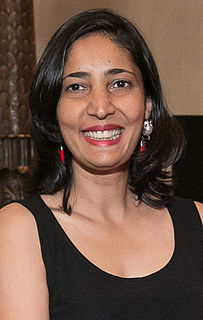Top 33 Quotes & Sayings by Kiran Desai
Explore popular quotes and sayings by an Indian author Kiran Desai.
Last updated on December 23, 2024.
Looking a dead insect in the sack of basmati that had come all the way from Dehra Dun, he almost wept with sorrow and marvel at its journey, which was tenderness for his own journey. In India almost nobody would be able to afford this rice, and you had to travel around the world to be able to eat such things where they were cheap enough that you could gobble them down without being rich; and when you got home to the place where they grew, you couldn't afford them anymore.
When he died, I went about like a ragged crow telling strangers, "My father died, my father died." My indiscretion embarrassed me, but I could not help it. Without my father on his Delhi rooftop, why was I here? Without him there, why should I go back? Without that ache between us, what was I made of?
You lived intensely with others, only to have them disappear overnight, since the shadow class was condemned to movement. The men left for other jobs, towns, got deported, returned home, changed names. Sometimes someone came popping around a corner again, or on the subway then they vanished again. Addresses, phone numbers did not hold. The emptiness Biju felt returned to him over and over, until eventually he made sure not to let friendships sink deep anymore.



















